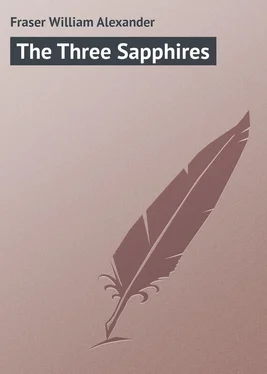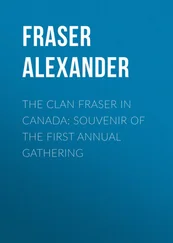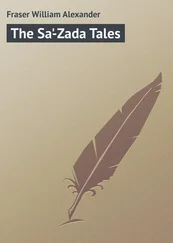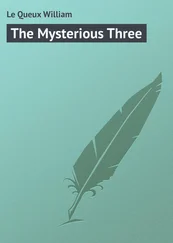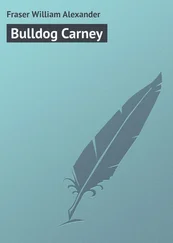William Fraser - The Three Sapphires
Здесь есть возможность читать онлайн «William Fraser - The Three Sapphires» — ознакомительный отрывок электронной книги совершенно бесплатно, а после прочтения отрывка купить полную версию. В некоторых случаях можно слушать аудио, скачать через торрент в формате fb2 и присутствует краткое содержание. Жанр: foreign_prose, Зарубежные любовные романы, на английском языке. Описание произведения, (предисловие) а так же отзывы посетителей доступны на портале библиотеки ЛибКат.
- Название:The Three Sapphires
- Автор:
- Жанр:
- Год:неизвестен
- ISBN:нет данных
- Рейтинг книги:4 / 5. Голосов: 1
-
Избранное:Добавить в избранное
- Отзывы:
-
Ваша оценка:
- 80
- 1
- 2
- 3
- 4
- 5
The Three Sapphires: краткое содержание, описание и аннотация
Предлагаем к чтению аннотацию, описание, краткое содержание или предисловие (зависит от того, что написал сам автор книги «The Three Sapphires»). Если вы не нашли необходимую информацию о книге — напишите в комментариях, мы постараемся отыскать её.
The Three Sapphires — читать онлайн ознакомительный отрывок
Ниже представлен текст книги, разбитый по страницам. Система сохранения места последней прочитанной страницы, позволяет с удобством читать онлайн бесплатно книгу «The Three Sapphires», без необходимости каждый раз заново искать на чём Вы остановились. Поставьте закладку, и сможете в любой момент перейти на страницу, на которой закончили чтение.
Интервал:
Закладка:
Swinton, turning his head at a faint sound, saw his bearer standing in the back doorway.
"Did master call?" the servant asked.
"No. Go!"
Trembling with apprehension, Baboo Dass slipped the case back in his breast. A revulsion of bibulous despondency took possession of him; he slipped a white cotton sock from one of the feet he had pulled from their shoes in his exuberancy, and wiped his eyes.
"Baboo Dass is right," Perreira declared, thrusting into the gap. "On the hill I am working like mole in the ground, but I got my eyeteeth looking when I am in the light. I am Britisher – Piccadilly Circus is home for me – if I work for native prince I don't sell my mess of pottage."
Perreira tapped the breast pocket of his jaran coat. "I got little book here – " The half-caste gulped; a wave of sea green swept over his face; he gurgled "Sick," and made a reeling dash for the verandah. At the door, he recoiled with a yell of terror. The baboo dived under the table.
Thinking it was the tiger, Swinton grabbed his rifle and sprang to the door, discovering a native standing against the wall.
"What do you want?" the captain asked in rapid English.
"Sahib, I am the night chowkidar of the compound."
"Sit on the steps there!" Swinton commanded.
Back at the table, he said: "Baboo, you and Perreira go back to your bungalow now with the chowkidar , but I warn you he understands English."
Trembling, Perreira whispered: "That man spy. Please lending me rupees two."
Baboo Dass revived to encourage the deal, saying: "Mr. Perreira is honest man; I endorse for him rupees five thousand."
Suspecting that the requested loan had something to do with the eavesdropping chowkidar , Captain Swinton went to his room, returning with the silver, which he slipped quietly into Perreira's palm, saying in a low voice: "Come to see me again." He stood watching the three figures pass down the moonlit road, and saw Perreira touch the chowkidar ; then their hands met.
Going to their rooms, Lord Victor said: "Don't see how the devil you had the patience, captain. Are you really going to do a book and were mugging up?"
"I may get something out of it," the captain answered enigmatically.
Chapter III
Captain Swinton had told his bearer to call him early, his life in India having taught him the full value of the glorious early morning for a ride. Lord Victor had balked at the idea of a grey-dawn pleasure trip on horseback, and Swinton had not pressed the point, for he very much desired to make a little tour of inspection off his own bat, a contemplative ride free from the inane comments of his young charge.
At the first soft drawn-out "Sah-h-i-b!" of his bearer, the captain was up with soldierly precision. His eyes lighted with pleasure when he saw the saddle horse that had been provided for him from the maharajah's stable. He was a fine, upstanding brown Arab, the eyes full and set wide. When Swinton patted the velvet muzzle the Arab gave a little sigh of satisfaction, expressing content; he liked to carry men who loved horses.
The bearer, officiously solicitous, had rubbed his cloth over the saddle and bridle reins, and, examining the result, said: "Huzoor, you have clean leathers; it is well. Also the steed has lucky marks and his name is Shabaz."
Shabaz broke into a free-swinging canter as the captain took the road that stretched, like a red ribbon laid on a carpet of green, toward the hill, whereon, high up, gleamed a flat pearl, the palace of Prince Ananda.
On the hillside was a delicate tracery of waving bamboos, through which peeped cliffs of various hues – rose-coloured, ebon black, pearl grey, vermilion red; and over all was a purple haze where the golden shafts of the rising sun shot through lazy-rising vapours of the moist plain. The cliffs resembled castle walls rising from the buried city, mushrooming themselves into sudden arrogance. To the north a river wound its sinuous way through plains of sand, a silver serpent creeping over a cloth of gold. Back from either side of the river lay patches of wheat and barley, their jade green and golden bronze holding of grain suggesting gigantic plates of metal set out in the morning sun to dry.
To the westward of the river lay Darpore City, looking like a box of scattered toys. Beyond the white palace the sal-covered hills lay heavy, mysterious, sombre, as if in rebuke to the eastern sky palpitating with the radiancy that flooded it from the great golden ball of heat that swept upward in regal majesty.
Yawning caves studding a ravine which cut its climbing way up the hillside shattered the poetic spell which had driven from Swinton's mind his real object in that solitary ride. The cave mouths suggested entrances to military underground passages. He was certain that the pearllike palace was a place of intrigue. The contour of the great hill conveyed the impression of a stronghold – a mighty fort, easy of defence. Indeed, as Swinton knew, that was what it had been. Its history, the story of Fort Kargez, was in the India office, and Prince Ananda must have lied the night before when he said he did not know what city lay beneath the palace.
Fort Kargez had been the stronghold of Joghendra Bahi, a Hindu rajah, when the Pathan emperor, Sher Ghaz, had swept through India to the undulating plains of Darpore.
Gazing at the formidable hill, Swinton chuckled over the wily Pathan's manner of capturing Fort Kargez by diplomacy. He had made friends with Rajah Bahi, asking the favour of leaving his harem and vast store of jewels in that gentleman's safe custody till his return from conquering Bengal.
Such a bait naturally appealed to the covetous Hindu. But the palanquins that carried the fair maids and the wealth of jewels had also hidden within enough men to hold the gate while a horde of Pathans rushed the fort. But Rajah Bahi and many of his soldiers had escaped to the underground passages, and either by accident or design – for the vaults had been mined – they were blown up, turning the fort over like a pancake, burying the Pathan soldiers and the vast loot of gold and jewels. Then the jungle crept in, as it always does, and smothered the jagged surface beneath which lay the ruined walls. Many of the artificial lakes remained; they were just without the fort.
Climbing the zigzag roadway, Swinton fell to wondering if all the prince's talk of a desire for removal from the bustle of Darpore City was simply a blind; if his real object weren't a systematic exploration for the vast store of wealth in the buried city and also the preparation of a rebel stronghold.
On the plateau, he took a road that forked to the right, leading between hedges of swordlike aloes to the palace gardens. At a gateway in a brick wall, his guide dropped to his haunches, saying: "There is but one gate, sahib; I will wait here."
Turning a corner of an oleander-bordered path, Swinton suddenly pulled Shabaz to a halt. Twenty yards away a girl sat a grey stallion, the poise of her head suggesting that she had heard the beat of his horse's hoofs. A ripple of wind carried the scent of the Arab to the grey stallion; he arched his tapering neck and swung his head, the eyes gleaming with a desire for combat. A small gloved hand, with a quick slip of the rein, laid the curb chain against his jaw; a spur raked his flank, and, springing from its touch, he disappeared around a turn. Piqued, his query of the night before, "Who was the woman?" recalled to his mind, Swinton followed the large hoofprints of the grey. They led to within six feet of the garden wall, where they suddenly vanished; they led neither to the right nor to the left of the sweeping path.
"Good old land of mystery!" the captain muttered as, slipping from his saddle, he read out the enigma. Back, the greater stride told that the grey had gone to a rushing gallop. Here, six feet from the wall, he had taken off in a mighty leap; two holes cupped from the roadbed by the push of his hind feet told this tale. Swinton could just chin the wall – and he was a tall man. On the far side was a fern-covered terrace that fell away three feet to a roadbed, and just beyond the road the rim of a void a hundred feet deep showed.
Читать дальшеИнтервал:
Закладка:
Похожие книги на «The Three Sapphires»
Представляем Вашему вниманию похожие книги на «The Three Sapphires» списком для выбора. Мы отобрали схожую по названию и смыслу литературу в надежде предоставить читателям больше вариантов отыскать новые, интересные, ещё непрочитанные произведения.
Обсуждение, отзывы о книге «The Three Sapphires» и просто собственные мнения читателей. Оставьте ваши комментарии, напишите, что Вы думаете о произведении, его смысле или главных героях. Укажите что конкретно понравилось, а что нет, и почему Вы так считаете.
